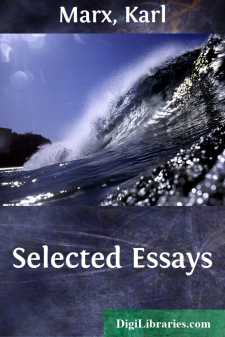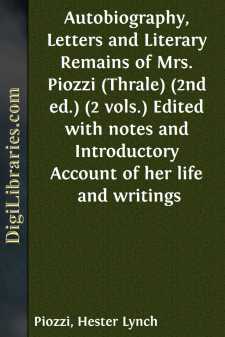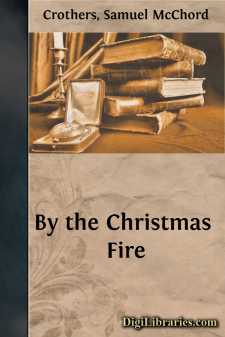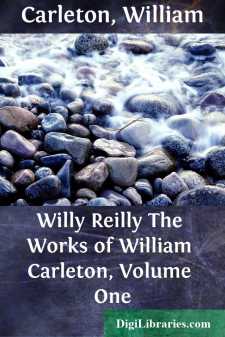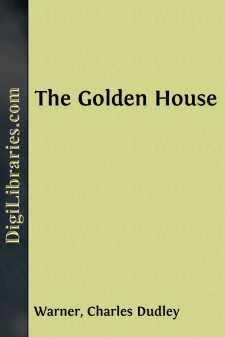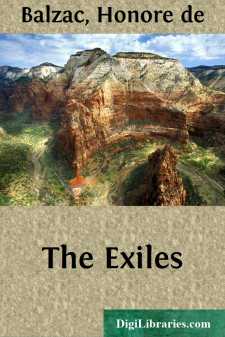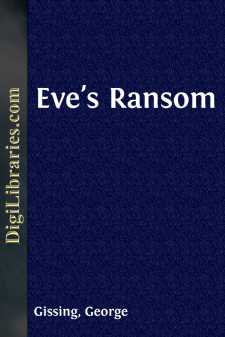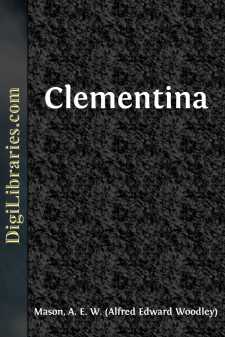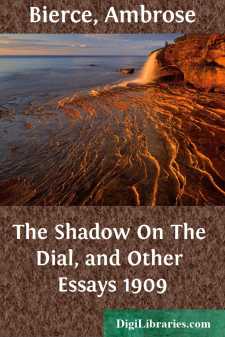Literary Collections
- American 84
- Ancient, Classical & Medieval 14
- Asian 1
- Australian & Oceanian 1
- Canadian 55
- Continental European 121
- English, Irish, Scottish, Welsh 179
- Essays 160
- General 24
- Letters 46
- Middle Eastern 1
Literary Collections Books
Sort by:
by:
Karl Marx
A CRITICISM OF THE HEGELIAN PHILOSOPHY OF RIGHT As far as Germany is concerned the criticism of religion is practically completed, and the criticism of religion is the basis of all criticism. The profane existence of error is threatened when its heavenly oratio pro aris et focis has been refuted. He who has only found a reflexion of himself in the fantastic reality of heaven where he looked for a...
more...
INTRODUCTION: Dr. Johnson was hailed the colossus of Literature by a generation who measured him against men of no common mould—against Hume, Robertson, Gibbon, Warburton, the Wartons, Fielding, Richardson, Smollett, Gray, Goldsmith, and Burke. Any one of these may have surpassed the great lexicographer in some branch of learning or domain of genius; but as a man of letters, in the highest sense of...
more...
As I sit by my Christmas fire I now and then give it a poke with a bayonet. It is an old-fashioned British bayonet which has seen worse days. I picked it up in a little shop in Birmingham for two shillings. I was attracted to it as I am to all reformed characters. The hardened old sinner, having had enough of war, was a candidate for a peaceful position. I was glad to have a hand in his reformation. To...
more...
by:
William Carleton
CHAPTER I.—An Adventure and an Escape. Spirit of George Prince Regent James, Esq., forgive me this commencement! * * I mean no offence whatsoever to this distinguished andmultitudinous writer; but the commencement of this novel reallyresembled that of so many of his that I was anxious to avoid thecharge of imitating him. It was one evening at the close of a September month and a September day that...
more...
It was near midnight: The company gathered in a famous city studio were under the impression, diligently diffused in the world, that the end of the century is a time of license if not of decadence. The situation had its own piquancy, partly in the surprise of some of those assembled at finding themselves in bohemia, partly in a flutter of expectation of seeing something on the border-line of propriety....
more...
by:
Honore de Balzac
ALMAE SORORI In the year 1308 few houses were yet standing on the Island formed by the alluvium and sand deposited by the Seine above the Cite, behind the Church of Notre-Dame. The first man who was so bold as to build on this strand, then liable to frequent floods, was a constable of the watch of the City of Paris, who had been able to do some service to their Reverences the Chapter of the Cathedral;...
more...
by:
George Gissing
CHAPTER I On the station platform at Dudley Port, in the dusk of a February afternoon, half-a-dozen people waited for the train to Birmingham. A south-west wind had loaded the air with moisture, which dripped at moments, thinly and sluggishly, from a featureless sky. The lamps, just lighted, cast upon wet wood and metal a pale yellow shimmer; voices sounded with peculiar clearness; so did the rumble of...
more...
THE HERO. His name is George, generally speaking. "Call me George!" he says to the heroine. She calls him George (in a very low voice, because she is so young and timid). Then he is happy. The stage hero never has any work to do. He is always hanging about and getting into trouble. His chief aim in life is to be accused of crimes he has never committed, and if he can muddle things up with a...
more...
CHAPTER I The landlord, the lady, and Mr. Charles Wogan were all three, it seemed, in luck's way that September morning of the year 1719. Wogan was not surprised, his luck for the moment was altogether in, so that even when his horse stumbled and went lame at a desolate part of the road from Florence to Bologna, he had no doubt but that somehow fortune would serve him. His horse stepped gingerly...
more...
by:
Ambrose Bierce
PREFACE THE note of prophecy! It sounds sharp and clear in many a vibrant line, in many a sonorous sentence of the essays herein collected for the first time. Written for various Californian journals and periodicals and extending over a period of more than a quarter of a century, these opinions and reflections express the refined judgment of one who has seen, not as through a glass darkly, the trend of...
more...


